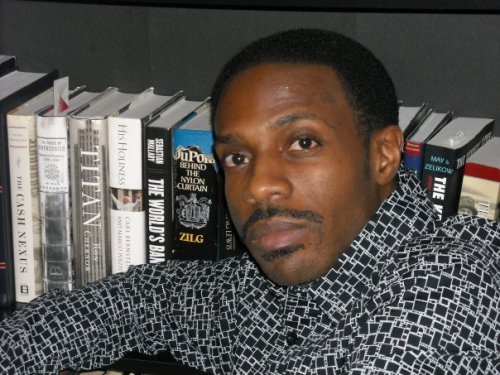
The music business is tough. To quote the late, great Hunter S. Thompson, it is, “…a cruel and shallow money trench, a long plastic hallway where thieves and pimps run free, and good men die like dogs.”
There are few personalities that can handle the rigorous ins and outs of the industry, moreover, find success within the music business. However, Cedric Muhammad, is one of those rare individuals who has endured many trials and hardships within the music industry and he has gained an even sharper business acumen and intellect as a result of his keen observation and hard work.
Cedric was a former manager for the notorious and esteemed Wu-Tang Clan. Since his tenure, he has gone on to start several successful businesses and developed and managed many lucrative partnerships.
I’ve been a fan of your blog and Allhiphop.com editorials for months now. But for the readers who are unaware of you, can you please state what your background in the music business is?
Cedric Muhammad: Thank you so much. Well, I went from being a fan to a consumer and from a consumer to a promoter and from a promoter to a manager. It’s a natural path and I say it like that because I think it is the way any young person can learn business – by looking behind the curtain a bit of your favorite hobby. But I would say concert and party promotion was where I really became rooted in the business side of things. I also credit internships at Uptown Records and especially Flavor Unit for giving me a clear business perspective when I was very young.
What initially sparked your interest in the music business?
C.M: As I mention in my bio video, my big brother got me involved in a concert at his college featuring the legendary Stetsasonic, Raze, and Phase II (house music groups). I worked the spotlight and got to meet the managers and see the business side of entertainment. I was seventeen – from that moment on I realized my place was behind the scenes. I was fortunate enough to give up on a career in rapping earlier than most of my friends.
How did you become involved with the Wu-Tang Clan?
C.M: I actually booked them while I was in college three years before I became part of Wu-Tang management. That’s how I met Mook, who was president of the management company. Years later we had a good laugh when he actually found my old college dorm phone number in his rolodex (laughs). But it was Divine – RZA’s brother who brought me into the management company because he respected the consulting work I was doing and just liked how I rolled professionally and spiritually.
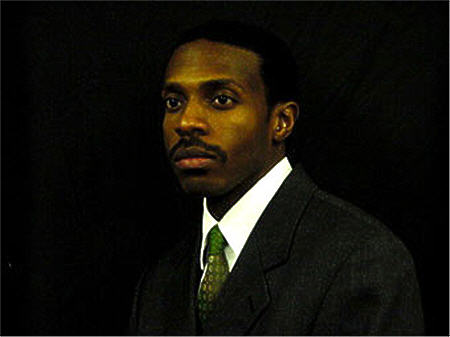
He asked me to give my opinion of the structure and culture of the way things were running and on that trial basis we took it from there. RZA and Divine then paired me with Mook with me becoming the general manager. To this day I am very grateful to all of the clan members and individuals and guiding influences like Poppa Wu who I learned much from as well as other executives like Power. It was a special time and great group of people to be around.
As I stated earlier, I’ve been a fan of your blog for months now and you have addressed some very interesting issues in regards to hip hop. I want to highlight some of the topics that you’ve spoken about in the past couple months.
C.M: Thanks, I’m honored to have your respect. Sure, let’s go.
I have noticed a trend in your writing in which you speak about the decline of the conscious emcee, how the music business is dying and you are in search of a new sound. It appears as if you view hip hop as an ailing genre.
Who is to blame for this? Do you feel the current generation of hip hop and rap fans has different priorities and expectations from the previous generations?
C.M: You are clearly a careful reader! I wish more people would pay attention to these dynamics…great questions.
Generally speaking I think hip-hop and rap music is experiencing what I call ‘demographic death.’ For every older fan in the generation (in their 30s, 40s, and 50s) we are not producing a new one in their teens to replace them. In my article, ‘The New Synth Pop: Ke$ha, Young Money, and Justin Bieber’ (http://allhiphop.com/stories/editorial/archive/2010/04/14/22169549.aspx) and my article ‘The 17 Year Old: The God Of Rap’ (http://allhiphop.com/stories/editorial/archive/2010/03/24/22153820.aspx) I explain the good and bad of this.
I think there is always something authentic about the tastes and preferences of the new generation and we always have to remember how culture, current events, and technology shape them. Obviously if we had the Internet, social media, mp3s, mobile phones, digital Cable, and a black president in 1986 our tastes would have been different. I do not believe that Public Enemy and N.W.A. would have necessarily been as big to us under those circumstances.
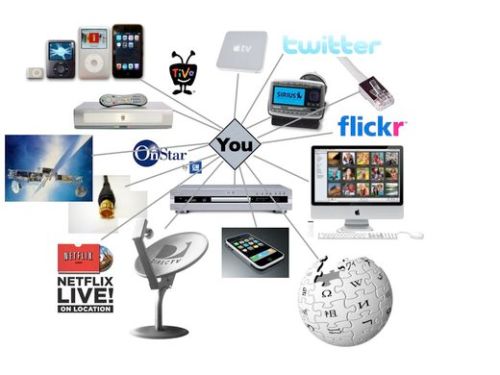
However, there is something unhealthy about corporations and artists refusing to target anyone other than a mythical 17-year old male. This is a demographic construct that advertisers and high-level marketers persuade rap radio stations, magazines, and video channels to target. This breeds immaturity into the culture and art, and it disconnects the oldest and youngest members of the generation.
While I do think every artist has a leadership profile, I don’t necessarily think it is their creative responsibility to satisfy both a younger and older audience. Their ‘story,’ talent, and consciousness or their brand, reputation, or image may not suit them for that.
At one particular era in time, more “conscious” emcees like Nas or Common could get signed to a major label on the strength of a good demo tape and a few hot guest appearances.
Now we see less conscious emcees and more rappers are willing to compromise their image and brand for fear of being labeled too left-field and abstract for the mainstream media.
How do you feel this affects the quality and the overall balance of the music that listeners are exposed to?
C.M: People forget artists like Nas, Common, Boogie Down Productions, Public Enemy and Wu-Tang were being signed by young independent-minded entrepreneurs working with or for bigger companies, but usually they were not well-heeled multi-national corporations themselves. The industry had not matured during that time period and hip-hop was still seen as something to be dealt with at arm’s length. So young, hip, and often very Jewish entrepreneurs filled that void until the parent corporations took notice and wanted to get their hands directly on the process from the ground up.
That business space between artists and major corporation, that ear to the street, and lack of politics resulted in a wider variety of artists being given deals. And we can’t forget things like the fact that much of the slang and knowledge being dropped was in code. Many program directors, A&Rs, CEOs and corporate boards could not decipher it early on (laughs).
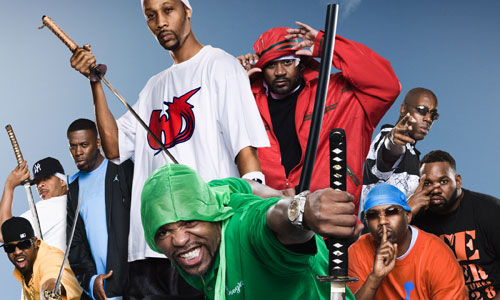
But I think ‘conscious MCs’ can be their own worst enemy by not being ‘conscious’ in how they do business, market themselves, and build their team infrastructure. We give well-read intellectuals who can rhyme too much credit simply because they can weave political slogans and quote great leaders over a beat.
Are conscious rappers extinct and if so, why do you believe their appeal may be limited?
I’ve sat and watched numerous conscious artists criticize mainstream and corporate-approved rappers in public and then in private try to hire their lawyers, publicists, accountants, and be signed to the same labels. That’s what usually causes them to be frustrated and limited in their appeal. There are all kind of independent oriented moves and out-of-the-box marketing tactics that they can utilize that better suit their brand-image-reputation and would keep it in better alignment.
With the fall of the major record label, these kind of artists look pitiful to me. They’re still trying to ‘get signed,’ ‘get their record or video played,’ and by a system they are supposedly banging against.
There is a way for a conscious artist to be mainstreamed and to become so big that the radio stations, video outlets, and record labels are forced to form a relationship with them. That could revolve around serious business – Public Enemy’s early success in New York is one of the greatest examples of this.
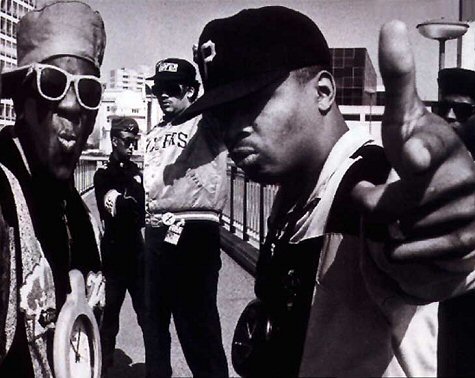
However, because these artists have no economic vision, blueprint or progressive business team they can’t resist an endorsement deal, movie role, or membership in a certain social circle. That eventually waters down their revolutionary appeal to the masses of the people.
They accept crumbs because they want to be artists more than leaders or businesspersons. And they are more reactive than proactive so they sell what they create rather than build institutions around or upon what they create.
Cedric, you’ve written extensively about Jay-Z, even going so far as to call him “the rich, righteous teacher.”
What is it about Jay that appeals to you so much?
C.M: I actually think Nas is my favorite rapper – but it fluctuates, I’m feeling that new Bun B album right now (laughs)! But seriously, see, you pay attention to what I wrote.
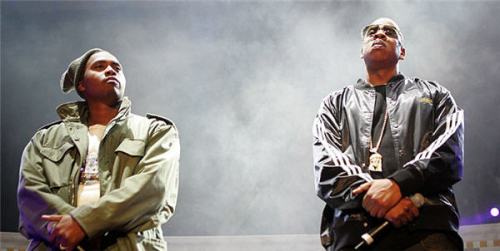
I called Jay-Z a ‘rich, righteous teacher,’ and people went into a frenzy without looking at the paradox or irony of the title. Can there really be such a thing when you look at it from the 55, 10% or 85% concept authored by Master Fard Muhammad?
I think Wise Intelligent framed the question best on a track released in 1993. He asked on the track ‘Black Business’ by Poor Righteous Teachers, ‘Where do Blacks with crazy cash and knowledge of themselves live at? Teacher haven’t seen them/ Many sold their souls for cash.’
In calling him a ‘Rich Righteous Teacher,’ I was saying something about the line he walks that is both to his credit and I believe potentially to his detriment. Jay-Z teaches by his example in many ways – lyrically and in how he conducts his business affairs. Look at his team, creatively and business-wise, and the respective roles they play. No conscious artist has anything like the kind of discipline he executes in keeping his brand-image-reputation in alignment.
He’s selective in interviews. You don’t see him acting in movies. He’s not a whore to endorsements. He communicates what he wants by his mere presence or absence at public events and from his desire or refusal to comment on certain subjects. That is not an accident or purely the result of a conspiracy he is part of. He is practicing some very heavy business principles.
And this is hard for his ‘conscious’ critics to accept about him because quite honestly many of them are ‘bad Marxists’ (as you know I actually admire Karl Marx) who confuse business acumen and economic cooperation with ‘capitalism,’ which they hate.
He has a form of etiquette that we all can learn from. And by the same token, I believe there are forces around him that may be keeping him from associating with certain people, taking certain stances and making certain moves. And I believe he has friendships and a sense of debt that he feels he owes to very powerful people outside of the black community that he does not want to threaten or disturb.
If the masses and his critics were more organized they could force Jay-Z to say or do whatever they wanted. But they make themselves powerless by whining about his success, rather than studying it, speaking his language of power and mobilizing effectively to correct or challenge him to do more or better.
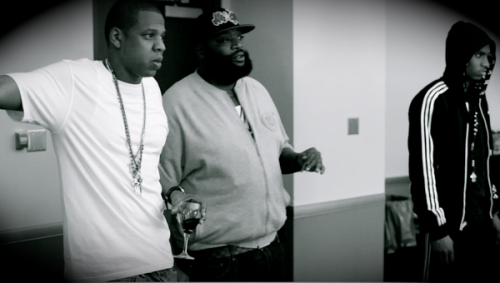
He’s sensitive to his credibility, popularity and business interests. That’s why you heard him respond on the Rick Ross track, “Free Mason” the way he did to the rumors that he is part of a secret society. Look how calculating he is…he definitively answers a controversy not by waiting for his own album to come out, or in a press release, but on the album of the hottest rapper out. But he sounds defensive to me. The man does not ever deliver a bad verse but this was not one of his best to me. Why? I think he was hurt by the rumors and it touched on an area where he is vulnerable – a growing sense that he has no connection to his people.
But if Jay-Z truly is the rich, righteous teacher, how is it possible for him to teach other artists and the community from an observer’s perspective?
Jay-Z is still actively involved with his music career and at this point no one can predict when he will step out the limelight.
I wish people would think in terms of the alignment of an artist’s brand-image-reputation and the strategies and tactics involved in maintaining that and less in terms of ideology. From that perspective you can see any public figure’s strengths and weaknesses, and how to ‘move’ them.
For instance, I think the secret society rumors – though unhealthy in some ways, even dangerous – may have been bad for his career, but good for him as a person and us as a culture because it caused him to speak to us as a real person again. He didn’t spit through the lens of an image and by doing this, he recognized that no individual can rise above the condition of his own people.
So, I love him and admire him…and I defend him more times than not. I think he offers a lot of teachable moments and I appreciate the fine line he walks, I understand that his rise to success and concern for his people create tense moments and that there may not be much of a playbook available to him on how to handle it.

What I find so funny about the conscious community’s ‘hate’ for Jay-Z is that it’s partly based upon the fact that they don’t have his dilemma – because they generally never reach that level of popularity, visibility or scrutiny.
But all of the great socialist-influenced leaders that the conscious community revere have the dilemma – people like Comandante Fidel Castro of Cuba , President Hugo Chavez of Venezuela, President Robert Mugabe of Zimbabwe, Muammar Gadhafi of Libya or Nelson Mandela for instance all have had to balance these dynamics – rising in influence on the back of the people’s support and finding yourself eventually in the room with people not from your community and having to do business, negotiate and make compromises.
Now watch some casual reader of this interview who hates Jay-Z question why I’m comparing him to these revolutionary leaders (laughs).
Ideologues have the luxury of being pure and perfect in their own minds, but not in reality. They criticize others as if they are saints because they never have to be judged on how well they apply their beliefs in the biggest public arenas.
Overall, I feel Jay-Z has ‘taught’ and inspired a lot of people with his entrepreneurial drive and success and he deserves credit for that. I even know someone who has even written a book about his lyrics – (http://bookofhov.com/).
Is the rap industry in a position to move past its icons of yesteryear and recognize new talent?
C.M: Maybe not the industry, but the youth certainly are! I love change and those who understand demographics, technology, and what circumstances cause people to think harder and more creatively are the ones who will always be relevant, useful, and add value.
Coming into the new decade, who do you feel is the future of hip hop?
C.M: In terms of location – Africa! In terms of artistic creativity…studio engineers with an ear to fuse existing synthetic and organic sounds and rappers with personalities that transcend creed, class, region and color (I call them diasporic personalities). These are people who care more about reading The Financial Times then Billboard magazine. In terms of business models – those who understand that technology has reduced music to the level of a commodity and that has to be bundled in order to add value to other goods and services.
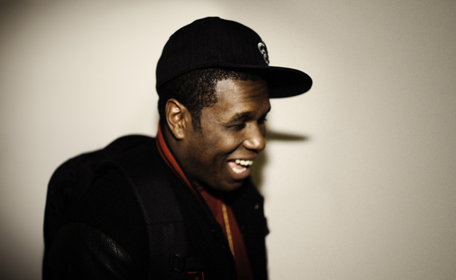
Since exiting the music business, do you feel you had a bitter experience or are you now better equipped to handle new challenges in different economic arenas?
C.M: There are a couple of experiences that still hurt from that time period of my life, like relationships and poor decisions, but I’m not bitter. I’m grateful because the lessons I learned, skills I acquired and adversity I faced have made me a better creative and critical thinker, and developed qualities and attributes that have helped me enormously in other areas – as a journalist, strategist and in generally in life.
And hell, one thing about this business – the war stories it gives you make you quite an interesting person to others (laughs)!
Name your top five emcees, dead or alive.
C.M: I’m not going to give you the ‘best MC’ list because that would take too long to give you my criteria, but by “top” I’ll define it in terms of a certain matchless quality some artists have in my humble opinion:
KRS-One: Greatest rapper ever in terms of lyrical content, live shows and activist influence.

Raekwon: Most unique flow – never been duplicated (honorable mention: Kool Keith of the Ultramagnetic MCs)
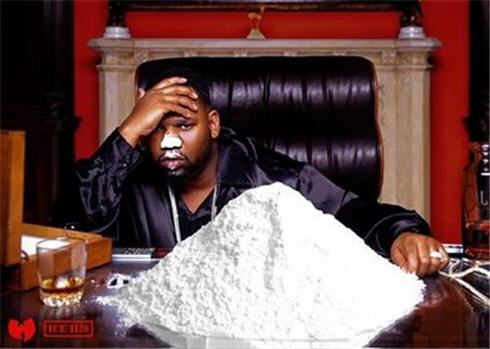
Jay-Z: Greatest ‘flow’ ever, most imitated and ‘hated’ rapper ever
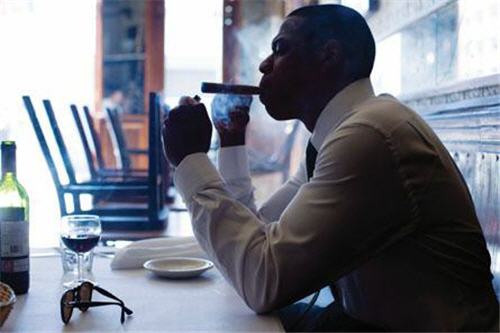
Scarface: Greatest story-teller and introspective rapper of all time
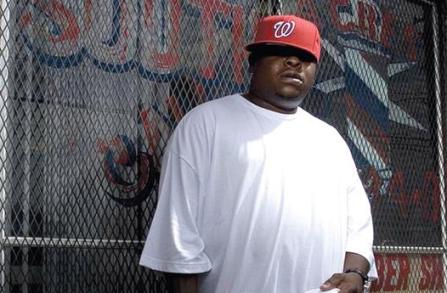
Tupac: The most marketable rapper ever – the epitome of having every major market segment in love with you simultaneously – women, streets, conscious, mainstream (honorable mention: Big Daddy Kane)
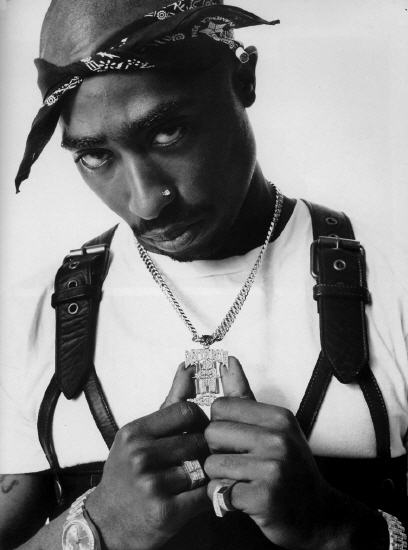
For more about Cedric Muhammad, check out his site here
Cedric is also a contributing writer on AllHipHop.com and the creator of the Black Electorate.
His latest book series is titled “The Entrepreneurial Secret” and can be purchased here. Copies are also available via Amazon and Barnes and Noble.

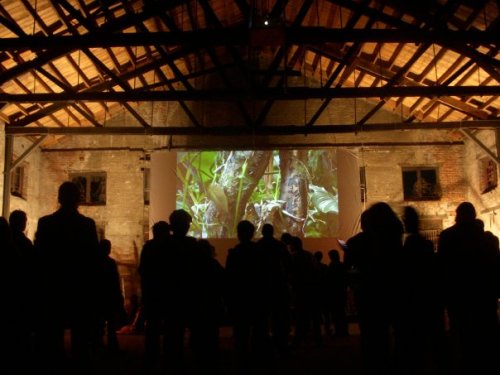
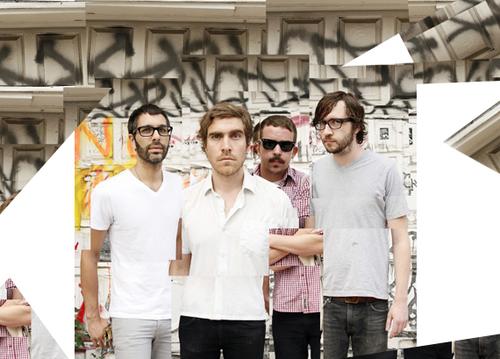
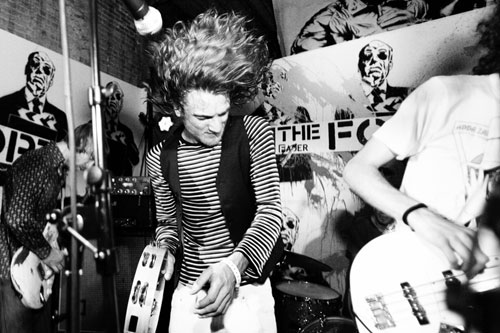

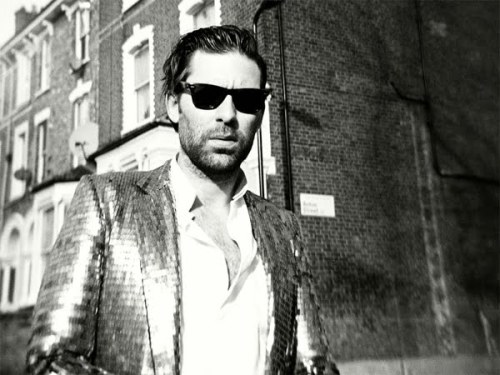
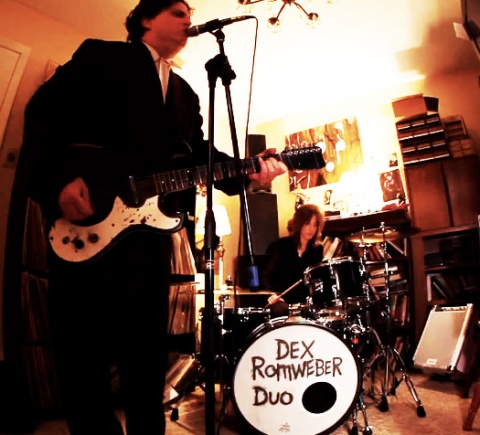
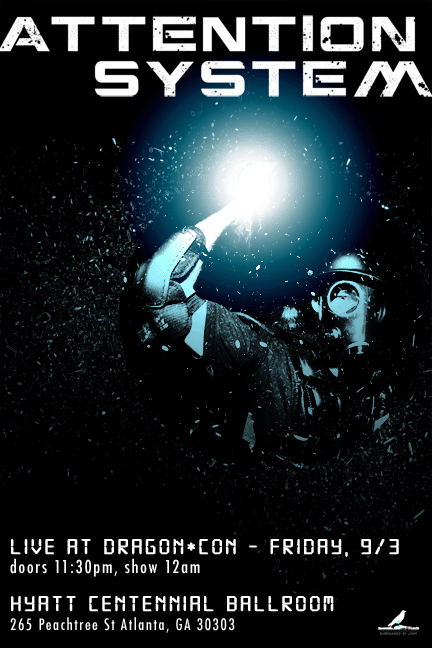














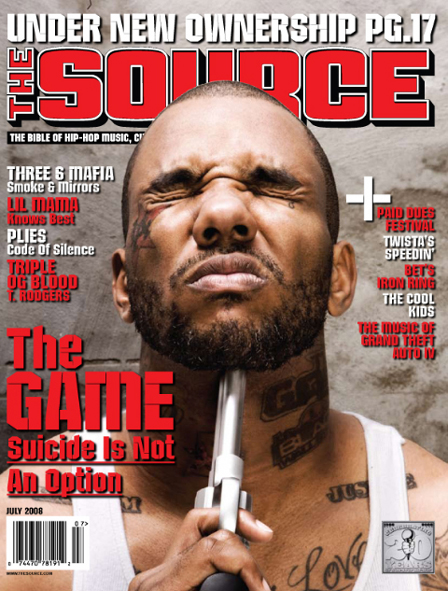
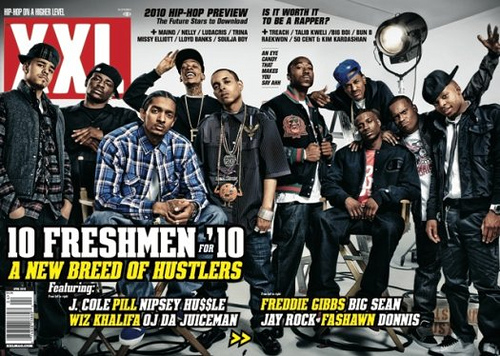
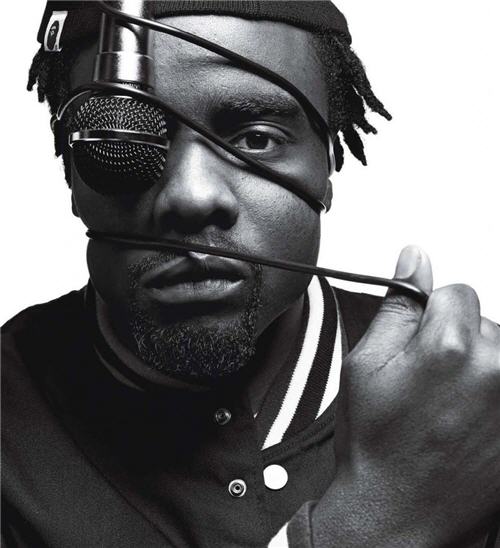
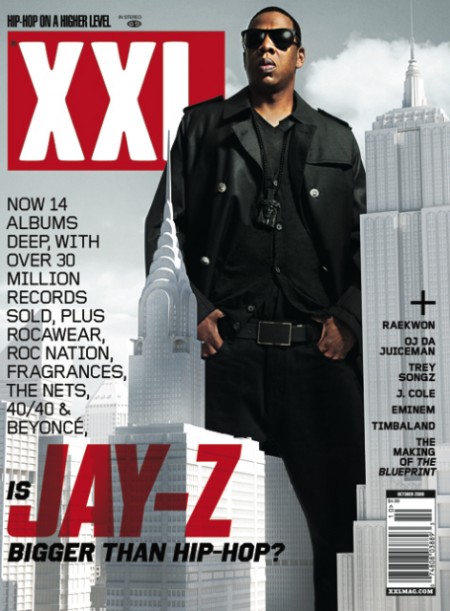
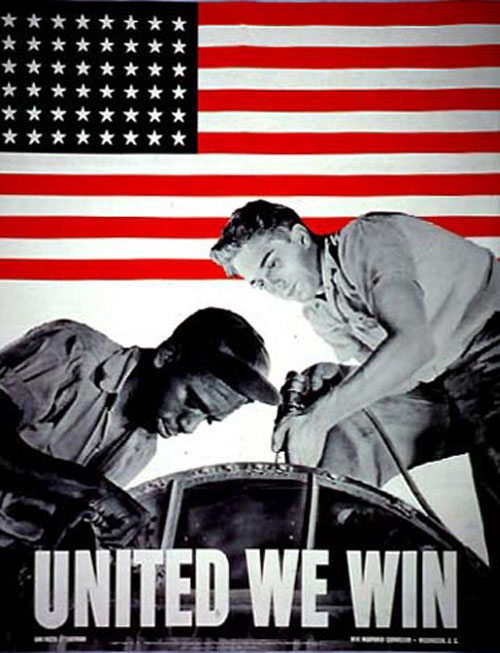
Where Does Art Belong in a Capitalist Society?
Art is not something that can be used within a diverse set of applications worldwide. A knowledgeable software programmer with a masters in computer science and engineering can create a software program that can benefit the entire world. Accountants help to interpret and communicate the financial information within a company; this is extremely valuable for business owners, managers and shareholders. The same can be said for doctors or clinical lab technicians who help to diagnose, monitor and treat diseases that can threaten all of mankind.
However, an art form such as music can only be taught to people who are interested in music and want to expand their own outlooks in regards to that craft. Music is not something that can be used in a variety of applications and fields and one person’s music tastes can be largely divergent from another person’s. So the entire art form is very subjective and is balanced upon the often disparate interests of different groups of people.
In general, from a capitalistic vantage point, it may be hard to weigh the overall benefits of the fine arts because 1) they cannot be applied universally and 2) it is hard to make an extraordinary amount of profit on the by-products of the arts and those products’ application within our modern global society.
From this perspective, one can better understand how arts programs have been cut from school budgets and why students are encouraged to enroll in more math and science courses and not band class. However, I would argue that the arts definitely have a place within a capitalistic society; moreover, they have a strong place within American culture.
As a capitalistic society, we may share a set of attitudes and goals surrounding the pursuit of profit or a greater dollar. But as a nation, we are a myriad of cultures and the arts are a major subdivision of all cultures within our nation. America is a very diverse nation, but as people we share a capacity for symbolic thought, creative expression and social learning. The arts enhance all of these things by granting individuals and groups the power to express themselves through art; impacting other people through a completely new and provocative experience that can transcend the artist’s initial inspiration or stimulus. This in turn manifests the creation of new symbolic thought processes and engages people in both passive and active learning experiences.
Let us not forget that the fine arts are universal and have the potential to connect people of all classes, races, ethnic groups and cultures worldwide.
Should it be mandatory for the government to support the arts?
This can be a tough question because it arouses the issue of what role the government should play in any private sector, including the arts. But I would make the case that the arts should not and are not exclusive to the private sector, but a part of the public sector. This is because the arts offer intrinsic value to our society – personally I feel that we cannot boil everything down to profit within this country.
In addition, I believe that arts programs should be in every academic institution. There should be government support and funds for all fine arts programs and monies allocated to people interested in teaching the different art forms to America’s students. If someone wants to teach ceramics, film studies, music, dance, or journalism to a group of young, budding minds; they should be granted that opportunity and know that they can always receive some form of income, no matter how large or small, from a government entity. This should be a mandatory initiative on Congress’s long, bullet-pointed agenda.
Why do I feel that the government should support the arts?
I feel the government should support the arts for the same reason that we value creative expression and ingenuity as human beings. I also value the arts because I understand that from time to time our society needs to take a mirror and have our people look at themselves. Artists provide that self-examination and keen, yet sometimes brutally honest observation of society. And let’s not forget, art is entertainment. We love the spectacle of seeing a gifted virtuoso onstage or watching a blank canvas transform into a work of art that resembles a reality separate from our own.
The entertainment aspect is honestly no different from what we get out of sports. We watch athletes because it’s entertaining and enjoy seeing people who are in their peak physical condition competing against similarly matched athletes. Yet time after time, schools and universities nation-wide increase the budgets of the sports teams (especially in the southeast), while the arts programs and facilities remain in constant fear and peril of being extinct on campus.
Parents send their children to specialized art schools where they can cultivate their artistic talents, but these schools remain on the fringe of the academic world. In addition, many parents may do this hesitantly because they feel their children will end up with a mountain of debt and no lucrative career to assist in paying it off.
My only answer is that the government can play a greater role in promoting the arts, specifically at the compulsory education levels of elementary, middle and high school. There are countless art galleries, museums, opera houses and dance halls funded by the government, that’s great! But I always hear complaints from the art teachers and band/orchestra directors at the schools. They complain about how the budget is being cut, teachers are losing their jobs; there is not enough interest in the programs, etc. There should always be government support for the arts and it starts at the school level.
Students who encompass a natural talent for the arts should not feel shunned. They should not feel that their set of skills is not valuable or lucrative within our society. As a musician, I have been told my entire life that music is great as a hobby, but why pursue it as a career? I have been told by family members, friends, counselors, etc. that being a musician can and will end up in starving artist lifestyle. And because it is a “starving” artist lifestyle, there is no value in it.
In addition, as a minority, I understand that amongst the lower-income black and Hispanic youth, it is more popular and respected to take the route of an athlete. They believe that because athletes in the NBA or NFL get paid more money and are more popular in the mainstream media. The job of an athlete ultimately becomes more appealing and gratifying to the impressionable inner city youth. If a few of these kids with artistic inclinations knew that they would be guaranteed some sort of income by being involved in the fine arts, things would be different. And it has to start at the compulsory education level, this is the time when our country’s youth is programmed and will eventually turn into future citizens/taxpayers of America.
In general, how the government and taxpayers respond to the arts agenda and cause is largely contingent upon where and how we view ourselves as a society. As consumers, we are all bound by the pursuit of a greater profit. This is a fact. But on a day to day basis, people do not ask themselves where they envision this country in the future. What kind of leaders will we have elected, what institutions will be built, how will the rest of the world perceive America? These are all tough questions that make up an even greater equation about how we ultimately define the new American society and the new American values of the 21st century.
But these questions have be to asked, at least evaluated- and the fate of the fine arts in our country should be one of these questions. My answer is simple. Fine arts education needs more funding at the compulsory education level. It is intrinsically tied to a child’s personal development and it is a public service to American society and culture.
*If you are seeking a solution on how to gain more funds for your fine arts program or start a fine arts program at your school, I would consult the National Endowment for the Arts (NEA) and find out where the funding sources in your state are.
You can access their site here and I would HIGHLY encourage you to read this article published by the NEA here
I also encourage students to start clubs at their schools. You may already have a band, orchestra, choir, art class, etc., but feel the curriculum doesn’t fit the needs of your current student body. First, talk to your teachers about it. Then see if you can start a club and highlight those art-related issues that you care most about. I was a part of a guitar club at my high school and it was a major part of my musical and personal development.
You can also partner with different organizations and people within your community. When I was in high school, my guidance counselor laughed when I said I wanted to play guitar and compose for a living. What she should have said is that I could seek out an internship at a local music venue or volunteer at a local theatre, art gallery or non-profit such as the NEA that works to protect and preserve the arts. Reach out to those other creative people in your community and help them make that community stronger.
1 Comment
Posted in art, featured, headline, music
Tagged fine arts, fine arts education schools, social commentary, thinkpiece, where does art belong in a capitalist society